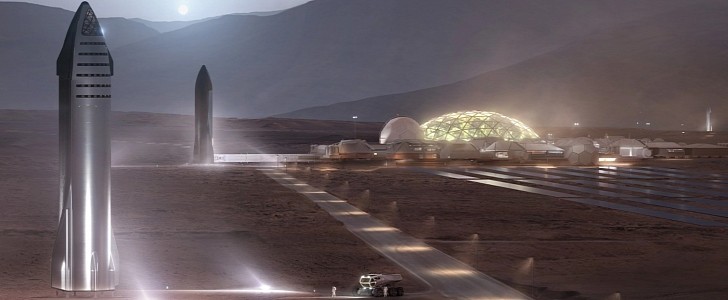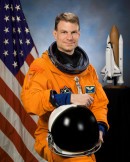Elon Musk wants to set up a colony on Mars by 2050, so he started his SpaceX company to achieve that. Obsessed with finding new planets in case humans will screw up Earth, Musk has no idea how hard it is to live isolated in outer space. NASA astronaut Stanley G. Love reminds him of that.
If Elon Musk has it his way, one million humans will become Martians by 2050. Musk thinks this will become inevitable when Earth’s resources deplete and possibly even earlier, as humans will doubtlessly wreck the planet. He doesn’t expect it to be easy and even concedes that some might die. “You might not come back alive, but it is a glorious adventure, and it will be an amazing experience,” he said last year on Earth Day in a chat with Peter Diamandis, founder of the X Prize Foundation.
Somebody with a little more knowledge about what’s it like being stranded away from your planet confirms it would be horrible, at least for the first people who get there. NASA astronaut and scientist Stan Love, who has logged over 300 hours in space, confesses that he wouldn’t sign up to join a Mars mission.
“Do I think it’s possible? Yes. Do I think it would be enjoyable? No. I think it would be horrible. This is based on an opportunity I had while in the astronaut office to go to Antarctica,” Love told the U.S. Sun.
Love tells how he felt on that field camp living in small tents on the Antarctic ice cap, with all the food they could possibly want. And yet, the eight men in the camp cherished three ping pong ball-sized wormy little apples from New Zealand they got with one of the supply transports.
“It will be a very long time before Mars is able to produce even a wormy little ping pong ball-sized apple,” says Love. “Much less a nectarine. Much less a day on the beach. Antarctica’s another model for that. I think the longest anyone has stayed there is five years continuously, and then they were out of there.”
Stan Love recalls his return from Antarctica after six weeks, saying that the smell of living soil, grass, and flowers “bring tears to your eyes.” This is one good reason why he doesn’t think people will flock to Mars anytime soon. Not willingly, at least. But faced with the perils of extinction, who knows?
Somebody with a little more knowledge about what’s it like being stranded away from your planet confirms it would be horrible, at least for the first people who get there. NASA astronaut and scientist Stan Love, who has logged over 300 hours in space, confesses that he wouldn’t sign up to join a Mars mission.
“Do I think it’s possible? Yes. Do I think it would be enjoyable? No. I think it would be horrible. This is based on an opportunity I had while in the astronaut office to go to Antarctica,” Love told the U.S. Sun.
Love tells how he felt on that field camp living in small tents on the Antarctic ice cap, with all the food they could possibly want. And yet, the eight men in the camp cherished three ping pong ball-sized wormy little apples from New Zealand they got with one of the supply transports.
“It will be a very long time before Mars is able to produce even a wormy little ping pong ball-sized apple,” says Love. “Much less a nectarine. Much less a day on the beach. Antarctica’s another model for that. I think the longest anyone has stayed there is five years continuously, and then they were out of there.”
Stan Love recalls his return from Antarctica after six weeks, saying that the smell of living soil, grass, and flowers “bring tears to your eyes.” This is one good reason why he doesn’t think people will flock to Mars anytime soon. Not willingly, at least. But faced with the perils of extinction, who knows?



